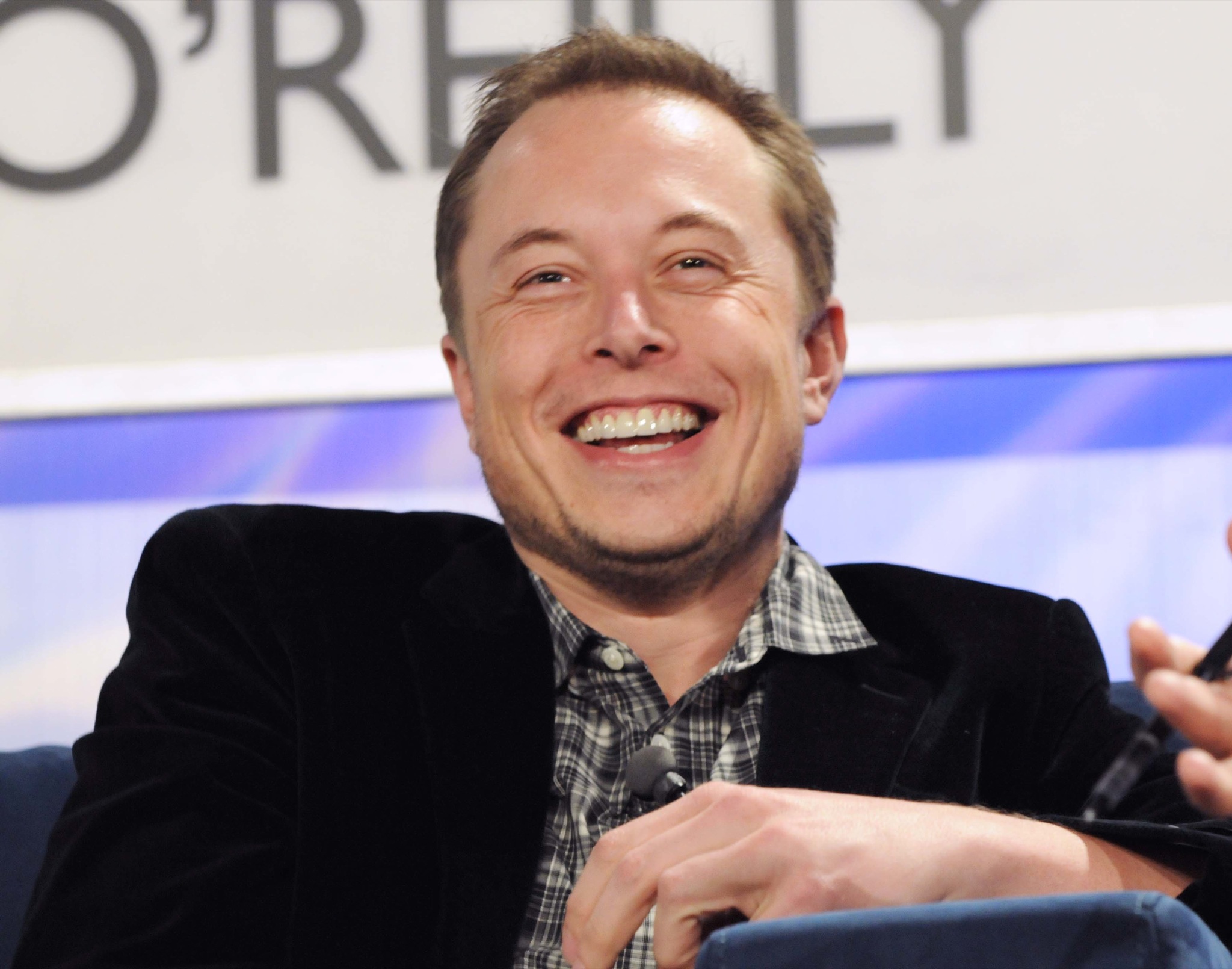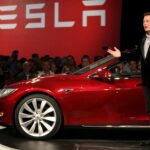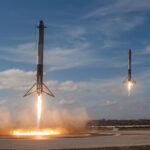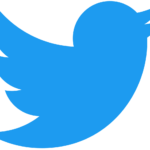
“He made an electric car, which is basically impossible. And, it works, which is basically impossible. And he built an infrastructure so you can charge the damned thing wherever you drive, which is basically impossible. Then he built a bloody rocket, which was 1/10th the price of a NASA rocket, that you could reuse, which was impossible. And then he put one of his cars on top of the rocket, and he shot it up into space.”
Elon Musk is a lightning rod for controversy. On one hand, Elon has loyal fans who applaud his ground-breaking innovations and his tireless work ethic. On the other hand, Musk has the unique ability to equally infuriate the political right and the political left. For example, his critics on the right mock him for his proactive stance on climate change, while pundits on the left don’t approve of his stance on free speech. Consequently, some students and educators reading this book might be tempted to skip this chapter because they cannot bring themselves to view Musk as a positive role model. However, the author hopes that the reader will approach this biography (and all other biographies in the book) with an open mind and then evaluate Elon’s place as a role model for the trait, initiative.
One of the goals of this book is to provide a collection of biographies of people with diverse backgrounds and diverse perspectives. Elon fits nicely in that spectrum. Like all of the individuals featured in this book, Musk is flawed. He has positive attributes and he has drawbacks. However, his heart seems to be in the right place and his motivations appear to be admirable: “I love humanity and I think we should fight for a good future for humanity,” Musk stated. “I think we should be optimistic about the future and we should fight to make the optimistic future happen.”
The Formative Years
Elon was born in South Africa in 1971, one of three children born to Errol Musk, an engineer, and Maye Musk, a magazine cover model and dietician. When Elon was three years old, his mother decided that he was cognitively gifted and she sent him to school a year early. (Although undiagnosed at the time, as an adult Elon announced that he suffers from Asperger’s Syndrome. This condition often is characterized by uniquely uncommon social interactions.) In any case, as a child, Elon was teased and bullied mercilessly at school. Indeed, one beating left him hospitalized for a week: “I was almost beaten to death if you want to call that bullying.” In fact, Elon did sense that he was different from other children. He best described his mind as a never-ending explosion of ideas that never seemed to end. “When I was 5 or 6, I thought I was insane,” Elon said on a podcast. “It was clear that other people’s minds weren’t exploding with ideas, all the time.”
dietician. When Elon was three years old, his mother decided that he was cognitively gifted and she sent him to school a year early. (Although undiagnosed at the time, as an adult Elon announced that he suffers from Asperger’s Syndrome. This condition often is characterized by uniquely uncommon social interactions.) In any case, as a child, Elon was teased and bullied mercilessly at school. Indeed, one beating left him hospitalized for a week: “I was almost beaten to death if you want to call that bullying.” In fact, Elon did sense that he was different from other children. He best described his mind as a never-ending explosion of ideas that never seemed to end. “When I was 5 or 6, I thought I was insane,” Elon said on a podcast. “It was clear that other people’s minds weren’t exploding with ideas, all the time.”
Elon has repeatedly observed, “I didn’t have a very happy childhood.” And he characterizes his father in very dark terms: “My dad was a carefully thought-out plan of evil. He was pure evil. It was very violent. My father has serious issues.” Elon’s mother also confirms that her husband was demeaning and abusive: “I was beaten up. When I was married, I was told about three times a day that I was boring, stupid and ugly.” Consequently, his mother divorced his father and, to this day, Elon remains estranged from his father.
Perhaps, as a result of his difficulties making friends, his unhappy family life and/or his insatiable curiosity, Elon spent considerable time by himself as a child. And he became a voracious reader; He read everything from comic books to the Encyclopedia Britannica. Then, at age ten, Elon taught himself to code. He subsequently created a video game called Blastar and sold it at the age of 12 for $500.
Partly to avoid mandatory military service in the South African Army (he detested South Africa’s institutionalized racial segregation practices of Apartheid) and partly to get closer to America, Elon moved to Canada at the age of 17. He was admitted to the Queen’s University in Kingston, Ontario. Two years later, he transferred to the University of Pennsylvania, where he completed a double-bachelor’s degree in Physics and Economics. Then, in 1995, Elon was accepted into a Ph.D. program in Applied Physics at Stanford University. However, after two days of classes, he dropped out. Remember, Elon had a brain that was exploding with ideas since the age of 5, and those ideas had never stopped emerging. At this crucial point, Elon recognized that other avenues would allow him to make an even greater contribution to society. Elon reasoned that he could either study physics or he could apply physics in business. Elon chose the business world.
Entering The World of Business
So, at the age of 24, Elon set out to better the world through “business,” namely, making things that would save mankind — an audacious goal! And, exactly how would this unknown person with no income and $100,000 of student loans accomplish this? For starters, he went straight to Silicon Valley to get a job in tech. However, no one would hire him. He would later joke that now-defunct Netscape didn’t even respond to his application. Therefore, Elon decided to launch his own start-up tech company. The question for Elon now was, “to do what?” According to Elon, “It goes back to when I was in university where I thought, ‘What are the problems that are most likely to affect the future of the world, the future of humanity?’” Now, in 1995, the internet was a mysterious and largely unknown entity. A few people were using it, but most thought it was just a fad that would die out in a few years. Musk thought otherwise. He believed the internet was the way of the future, and that he could be one of the pioneers.
His first company was Zip2, which he founded with his brother and a friend. Musk reasoned that existing companies would need help transferring their content from print media to the Internet. He also believed that the business directories in the back half of the phone book would soon be obsolete: The internet could provide maps, directions and information about every business in the world. Zip2 would essentially be the world’s first version of Google Maps or Yelp.
The trouble was Musk couldn’t afford to rent an office and an apartment, so he just rented an office. He slept on the floor by night and showered at the local YMCA. Starting a trend that would continue for decades to come, Musk worked 18-hour days to get his fledgling company off the ground. Nevertheless, Elon’s attempt to become the company’s CEO was thwarted because his potential investors thought he was too young and inexperienced. Four years later, a larger company called Compaq purchased Zip2 for $307 million. Elon’s 7% share in Zip2’s sale was $22 million.
Musk’s next emerging idea was to bring a financial system to the internet. He thought traditional banking was old-fashioned. So, with the money from the sale of Zip2, he started X.com in 1999 and installed himself as CEO. The idea of this revolutionary company was to provide people with the ability to purchase products without involving the traditional banking system. This company was renamed PayPal in 2001 and acquired by eBay for $1.5 billion. Elon walked away with $175 million.
Now, most people would take that money, buy a little island in the Bahamas and retire. But, not Elon Musk. Remember, he had bigger plans and bigger ideas, namely, to “make the world a better place.”
I am an optimist. I am hopeful. I want to maximize the probability that the future will be better. It’s sort of altruistic, but why wouldn’t you try to make the future better if you are going to be a part of it?
Elon then decided that of all the problems facing the world in 2002, two were paramount: 1) Shifting the world to sustainable energy to solve the global warming crisis; 2) Enabling humans to live on other planets so that humankind would not be permanently extinguished by a meteor, natural disaster, or nuclear holocaust.
As far-fetched and daunting as those goals seemed, Elon Musk tackled them directly by starting SpaceX in 2002 and Tesla in 2003. He took the proceeds from his PayPal buyout and divided them between these two companies — even though he believed that both companies would most likely fail: “I gave basically both SpaceX and Tesla — from the beginning — a probability of less than 10% likelihood to succeed.” Subsequently, because he was the CEO of each company, he would sleep on the floor of these companies, work 80-100 hours a week, and almost never take time off. Now, for the purposes of this story, let’s focus on one company at a time.
Tesla Automobiles
 Tesla was founded to accelerate the world’s transition to sustainable energy. The mission of this company has been “to accelerate the advent of sustainable transport by bringing compelling electric cars to mass-market as soon as possible.” By 2006, Tesla had created the Tesla Roadster — a high-end electric car. It was released to the market in 2008, which happened to coincide with the global recession. “2008 was not a good time to be a car company, especially a start-up car company, especially an electric car company,” Musk stated. “It was like stupidity squared.” Buying a $100,000 electric car was not at the top of the agenda of most Americans struggling to put food on the table.
Tesla was founded to accelerate the world’s transition to sustainable energy. The mission of this company has been “to accelerate the advent of sustainable transport by bringing compelling electric cars to mass-market as soon as possible.” By 2006, Tesla had created the Tesla Roadster — a high-end electric car. It was released to the market in 2008, which happened to coincide with the global recession. “2008 was not a good time to be a car company, especially a start-up car company, especially an electric car company,” Musk stated. “It was like stupidity squared.” Buying a $100,000 electric car was not at the top of the agenda of most Americans struggling to put food on the table.
There were a lot of problems to solve before Tesla could become a profitable company. Moreover, each one required a solution that had never existed in the history of mankind. For example, how would the company obtain the raw materials for millions of lithium batteries? How do you make the electric charge last 200+ miles? How do you inundate the world with charging stations to charge the car on longer trips? How do you mass produce millions of electric cars all over the world and make them affordable for the average person? In the face of these daunting issues, Musk remained steadfast and focused. As CEO he addressed and solved each issue, not from the executive suite of a luxurious office, but from the factory floor.
I lived in the Fremont and Nevada factories for three years — Fixing that production line — running around like a maniac — through every part of that factory — living with the team. I slept on the floor so that the team going through it could see me on the floor, that they knew that I was not in some ivory tower. Whatever pain they had, I had it more… There wasn’t any other way to make it work. It was 3 years of living hell.
The end result: In 2014, Tesla sold 35,000 cars; In 2022, Tesla sold 1,313,851 cars. Moreover, Musk projects that they will produce 20 million cars in 2030 at a cost of less than $40,000 per car. To accomplish this goal, Tesla has built six gigafactories on three continents, and staffed them with over 100,000 full-time employees. Tesla also has 40,000 supercharger stations around the world and it currently takes only 20 minutes to fully charge the battery. Musk has also pledged that, if you own a Tesla, charging your car at these supercharging stations will be free. Along the way, Tesla has received the highest safety rating of any car in history and the Model S has the fastest 0-60 time ever recorded.
SpaceX
As the United States entered the 21st Century, its once-promising space program seemed to have stalled. In 1969, the United States sent men to the moon. But the last time a man walked on the moon was the year 1973. After that, from 1976 to 2011, the space shuttle could only orbit the earth. In fact, when NASA (National Aeronautic and Space Administration) was halted by the federal government in 2011, humans were incapable of sending a rocket into space. “So that’s the trend,” said Musk. “The trend is down to nothing. People are mistaken when they think that technology automatically improves. It does not automatically improve. It only improves if a lot of people work very hard to make it better.”
 So, with a $100 million investment of his own money, Elon Musk founded SpaceX and installed himself as CEO in 2002. Many have asked why he has undertaken such an enormous task. Musk consistently responds: “Life is more than simply solving one problem after another. We all want to wake up in the morning full of anticipation for the future and rejoice in what is to come.” And, for Musk, he wants humans to become multi-planetary creatures: “Either we are a multi-planet species, out there exploring the stars or we are a single-planet species waiting around for our eventual extinction.” Going to and setting up a base on Mars would be the greatest adventure ever.
So, with a $100 million investment of his own money, Elon Musk founded SpaceX and installed himself as CEO in 2002. Many have asked why he has undertaken such an enormous task. Musk consistently responds: “Life is more than simply solving one problem after another. We all want to wake up in the morning full of anticipation for the future and rejoice in what is to come.” And, for Musk, he wants humans to become multi-planetary creatures: “Either we are a multi-planet species, out there exploring the stars or we are a single-planet species waiting around for our eventual extinction.” Going to and setting up a base on Mars would be the greatest adventure ever.
Musk envisions 1,000 SpaceX Starships landing on Mars to create a self-sustaining city with over one million people. On many occasions, Musk has stated that he wants to be on one of those Starships, and ultimately wants to die on Mars. That’s the dream that continues to motivate Elon Musk to get out of bed each day.
It’s one thing to have such dreams. But it is something else entirely to have the initiative to personally turn the dream into a reality. It is almost incomprehensible to think about the steps, the challenges, and the solutions that Musk had to oversee for SpaceX to become the first private company to successfully launch a rocket into outer space. He will also tell you that it almost didn’t happen.
The first three rockets that SpaceX attempted to launch into outer space exploded. Scott Pelley, a reporter from 60 Minutes, asked Musk at the time if he was ready to just pack it in after the third failure. “Never,” was Musk’s response. “I don’t ever give up.” Just eight weeks later, on September 28, 2008, a rocket named Falcon 1 successfully made it into space. Musk said the launch was the most pivotal moment of his life. “If that fourth launch hadn’t of worked, that would have been it,” said Musk. “We would not have had the resources to launch a fifth.” As a consequence of that successful launch, within a month NASA provided a $1.2-billion contract to further fund SpaceX.
For Musk, this successful launch was just the first step. The next step was to create reusable rockets. Musk reasoned that this was the only way to make space travel affordable. So, in 2015, the Falcon 9 was sent into orbit and successfully landed. This maneuver has been successfully replicated several times. In 2020, the Dragon 2 became the first manned space rocket sent into orbit and land successfully. Each step gets Musk closer to his goal of sending people into space. By 2032, he foresees paying customers flying to the moon on SpaceX rockets “just for the fun of it.” And, by 2040, he envisions rockets going to Mars with the express mission of colonizing the Big Red Planet.
When speaking about Tesla and SpaceX, Musk frequently uses the analogy of a little kid fighting a bunch of sumo wrestlers. “We’re a little scrappy company,” Musk says. “Every now and again, the little scrappy company wins. I think this is one of those times.” When critics tell him that he can’t do the things he’s proposing, he responds by saying, “We’ve done it.”
Meanwhile, Back at Headquarters…
Acting as the CEO of two world-transforming companies might seem like enough for any human being, but not for Elon Musk. It’s as if he cannot resist. If he views a societal problem, he wants to solve it.
- Musk co-founded Neuralink in 2016. This is an artificial intelligence company that has set the goal of developing devices that will treat diseases like dementia and depression while also curing paralysis, deafness, blindness, and other disorders.
- Tesla has created solar roofs that power entire houses. Musk predicts that by 2035, these roofs will be the norm in America. “I’m confident that solar will beat everything, including natural gas,” Musk said in 2017. “I am extremely confident that solar will at least be a plurality of power (more than any other energy), and most likely a majority within 20 years.”
- In partnership with his artificial intelligence company, Musk has created a robot named Tesla Optimus that will reside in households to perform daily chores and tasks to free homeowners of such responsibilities. By 2050, he predicts that these robots will be as prevalent as the home computer. “People have no idea,” said Musk in 2022. “This is going to be bigger than the car.”
- Musk founded the Boring Company in 2017. It builds tunnels under the earth to alleviate traffic. He believes that traffic exists because humans only think about traveling on one level (e.g., a road). But if he can build three, four, or even ten levels of roads beneath major cities, people could get to their destinations much quicker. And, if people are using self-driving Tesla vehicles, this will all be automated at 150 miles per hour and — Musk envisions — passengers would get from New York to Florida in less than three hours.
- Musk believes it is important for people to have the right to speak freely within the bounds of the law. He further believes that social media can make that possible. Because he perceived that Twitter had become the virtual town square, in 2022, he took the initiative to buy it for $44 billion and placed himself as its CEO.
I believe Twitter should be an inclusive area for free speech… I believe Twitter should open source the algorithm, and if Twitter emphasizes or deemphasizes a tweet, that action should be made apparent. There should be no ‘behind the scenes’ manipulation, either algorithmically or manually.
 Musk believes that, by owning and managing Twitter, at a time when free speech is being limited, he can assure the public of its right to a free exchange of ideas. To him, such a mechanism is important to a functioning democracy around the world. After all, he observes, “A good sign as to whether there is free speech is when ‘someone you don’t like is allowed to say something you don’t like.’”
Musk believes that, by owning and managing Twitter, at a time when free speech is being limited, he can assure the public of its right to a free exchange of ideas. To him, such a mechanism is important to a functioning democracy around the world. After all, he observes, “A good sign as to whether there is free speech is when ‘someone you don’t like is allowed to say something you don’t like.’”
In 2021, Musk became the richest person in the world with an estimated net worth of $300 billion. However, when the stock market corrected in late 2021, Musk earned a Guinness Book of World Records distinction for also losing the greatest amount of money in history — an estimated $200 billion. Musk also tweeted that he paid over $11 billion in taxes for the year 2021, which set another record: The most taxes paid by a single person in one year.
All this money talk is fodder for the media, pundits, and critics. Musk insists that he has “little interest in the material trappings of wealth.” On a podcast in 2021, Musk said that the term ‘billionaire” had become a pejorative term and that accumulating things had become an “attack vector.” So, Elon sold almost every personal thing he had and now rents a house. He prefers to spend his time at work anyway, so he couldn’t see the point of having multiple houses or boats. The one exception is his private jet. Elon says having this luxury item allows him to be more productive with the 24 hours in each day.
As of 2023, Forbes Magazine estimated that Musk has donated over $100 million to charity. Furthermore, Musk has also signed the Giving Pledge, as have many other billionaires around the world. This pledge obligates him to donate at least half of his fortune to charity. Given that many predict Elon will be the first person to amass a fortune of 1 trillion dollars, his charitable donations are likely to be humongous. As time goes by, it will be interesting to see how his donated fortune affects humanity.
Historically, when an entrepreneur invents something new, the individual or company applies for a patent to protect their innovative product for a period of 3, 10 or 20 years. With a patent, no person or company can steal that product and duplicate it in their own factory. Musk, on the other hand, does not apply for patents. In so doing, he does not protect his ideas and work from being copied by competitors. In fact, Musk says, “Patents are for the weak.” Musk wants everyone to be working cooperatively to solve the challenges of humanity. If individuals or companies desire to copy his advancements and make them better, they are welcome to try.
It is fair to note that Musk’s goals to change humanity have come with tremendous personal costs. For example, because Musk has consistently prioritized his many businesses over his family, he has been divorced three times. Musk will be the first to tell you that it’s difficult to work 80 hours a week for 2-plus decades and sustain a happy home life. There also has been little quality time to split between his 9 surviving children (his first child died of Sudden Infant Death Syndrome as a baby). As a consequence, one of them filed a request to change her name, saying “I no longer want to be associated with my biological father in any way, shape, or form.”
Historical Context
As was mentioned at the beginning of this chapter, many people admire Musk for his many innovations and his accomplishments. Simultaneously, he has many naysayers and detractors who have criticized him for all kinds of reasons. For example, when he bought Twitter in 2022, 50 of the top 100 advertisers stopped advertising on the platform. Instead of giving Musk a chance, millions of Twitter users deleted their accounts. This included celebrities like LeBron James, Elton John, and Whoopi Goldberg. Shonda Rhimes tweeted, “Not hanging around for whatever Elon has planned. Bye.” When Elon was invited to host Saturday Night Live in 2022, many of the writers and cast refused to work with him.
Love him or hate him, there is no denying that Musk is one of the great innovators of our time. Perhaps when historians look back at the history of mankind in the year 3020, Elon Musk might be mentioned with innovators like Johannes Gutenberg, Albert Einstein, Thomas Edison, The Wright Brothers and Steve Jobs. Certainly, the initiative Musk has demonstrated as the CEO of numerous companies is changing the lives of millions of people on the planet Earth. Famous podcaster, Joe Rogan stated, “What motivates a guy like that to do so many different things? We’re lucky that we’ve got a guy like that.” Microsoft founder Bill Gates recently commented, “I think what Elon’s done with Tesla is fantastic. We need more Elon Musks.” Intellectual Neil deGrasse Tyson commented, “He’s a force in society — a cross pollination of Thomas Edison and Tony Stark from the Avengers.” So, now that you have read this chapter, think about how you evaluate Elon Musk. In your estimation, should he be included among the greatest visionaries of all time? Does he exemplify the trait “initiative”? Is he a positive role model for others to emulate?
Discussion Questions
- Do you think Elon should be included among the greatest visionaries of all time?
- On a scale of 1-10 (10 being an amazing role model), how would you rate Elon as a positive role model? Explain.
- Describe the way Elon grew up, including family, school and individual characteristics.
- Describe the initiative it took for Elon to keep Tesla and Space X going at the same time.
- What inspires you about Elon Musk and how can his life make you a better person?

Disscussion Questions
1. Yes I think Elon should because he has worked very hard on what he does and I think he earned it
2. 9/10 he’s a positive role model because he is sucsessful and thats how I want to be when I grow up a sucsessful person.
3. he grew up with a abusive dad and his dad hated elon he told elon he was worthless & he was also in poverty
4. it was very hard keeping two company’s going at the same time, he worked very hard trying to keep it going and it worked!
5. He didn’t start off with money which I think is very inspireing not only to me but for people who don’t have money and are trying to be like him someday
I believe Elon Musk should go down as one of the greatest visionaries of all time. His goals, visions, and dreams, he proved them all. He can want something and then make it happen which is not something most people can do. On a scale of 1-10 I rate Elon a 7 on a role model. Just for the fact his work ethic, initiative is so high. I respect it and look up to him for it. He spent a lot of time to himself. He did not have a good relationship with his father, and he still doesn’t. He was gifted his mom says so they started him in school earlier than most. Elon’s initiative with running Tesla and Space X is something that could almost not be explained. With his team and workers and the 80-hour weeks of work never home. Alot of problems with divorce and kids but he made the business work. I am inspired about Elon work ethic but as a person I do not look up to him. He has taught me that I can better myself and chase my dreams.